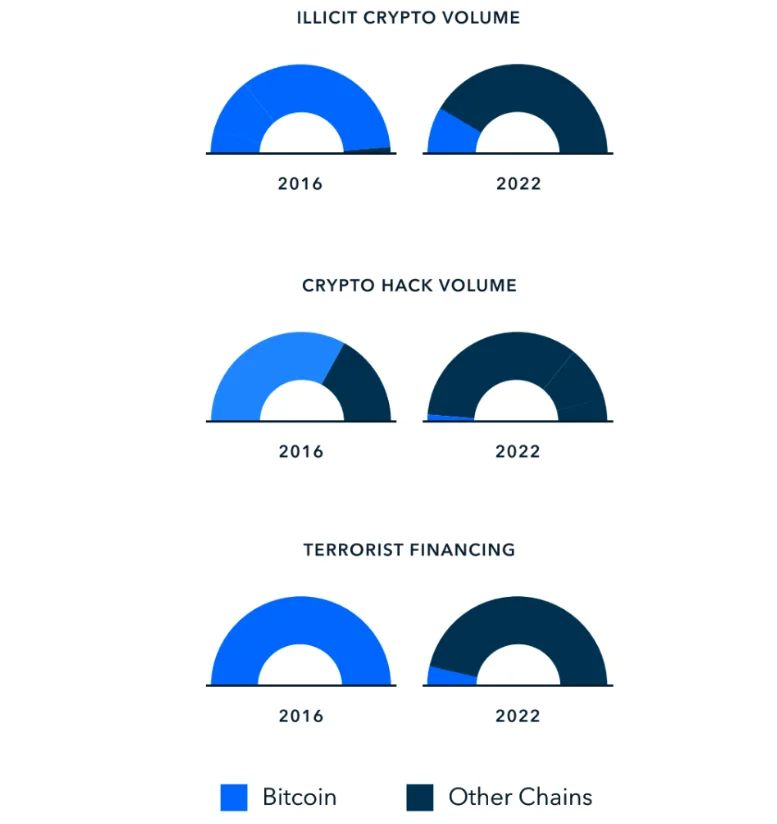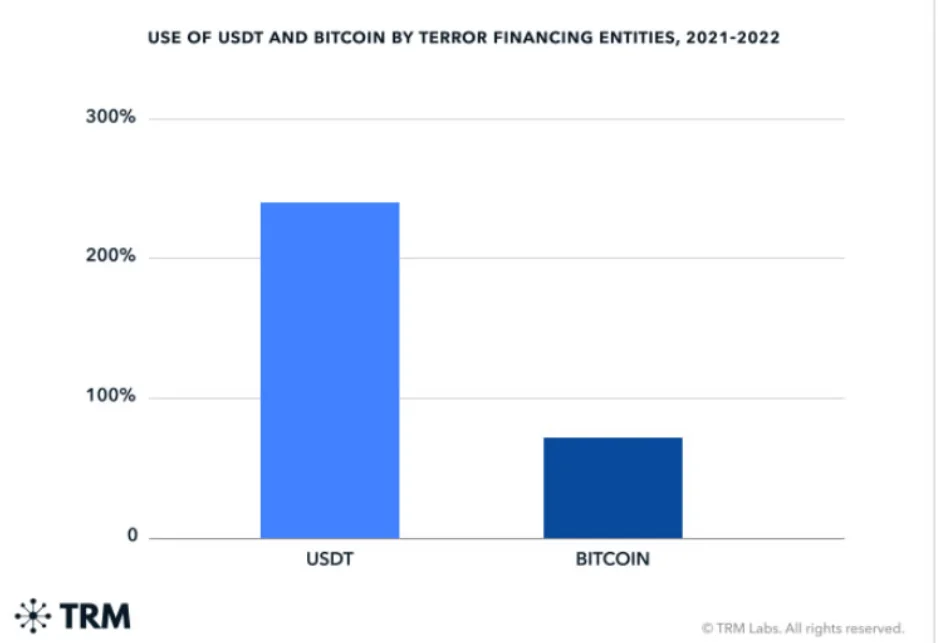According to new research by TRM Labs, fewer cybercriminals use Bitcoin as their primary method of transferring illicit funds and are now reverting to fiat channels or other cryptocurrencies.

In its “Illicit Crypto Ecosystem Report,” published on June 28th, digital asset compliance and risk management firm TRM Labs revealed that illicit finance volumes involving Bitcoin BTC had decreased substantially over the past seven years.
According to TRM Labs, the advent of multichain technology has resulted in a “quantitative leap” away from Bitcoin as the primary means of moving criminal proceeds.
The company also emphasized that cash and other forms of fiat-based financing remain the “default” method of illegal money transfers.
“Indeed, cash and even older forms of finance such as hawala (transferring money without physically moving it) remain the default means by which illicit activity is financed and its proceeds are laundered.”
TRM Labs also noted that, despite the rise in crypto-related criminal activity, “crypto did not invent these criminal forms.”
In 2022, the company disclosed that approximately $2 billion in cryptocurrency was stolen via attacks on cross-chain bridges, but only a tiny portion of that was Bitcoin.

“The multichain era has had a profound effect on the distribution of illicit crypto volume overall,” the report noted, adding that Bitcoin’s proportion of illicit transactions dropped from 97% in 2016 to 19% in 2022.
In addition, while Bitcoin accounted for two-thirds of the volume of crypto hacks in 2016, this proportion had dropped to less than 3% by 2022. It was stated that the void was filled by Ethereum (68%) and BNB Smart Chain (19%).
Similarly, Bitcoin was once the “exclusive currency” for terrorist financing, but by 2022 it had been “virtually replaced” by Tron, according to TRM Labs.
In addition, TRM Labs asserts there was a 240% increase in the use of Tether among terror financing organizations it monitored in 2022.

The latest illicit finance figures in cryptocurrencies may be good news for Bitcoin, whose institutional adoption is back on the agenda.
According to TRM Labs, however, at least $7.8 billion was paid into Ponzi and pyramid schemes, up to $1.5 billion was spent on darknet markets specializing in narcotics, and $3.7 billion was plundered via DeFi hacks and exploits in 2022.
As reported earlier this year, 2022 set a new record for illicit cryptocurrency transactions. The cumulative value of cryptocurrencies received by criminal addresses in 2017 exceeded $20 billion, according to the analytics firm Chainalysis.
